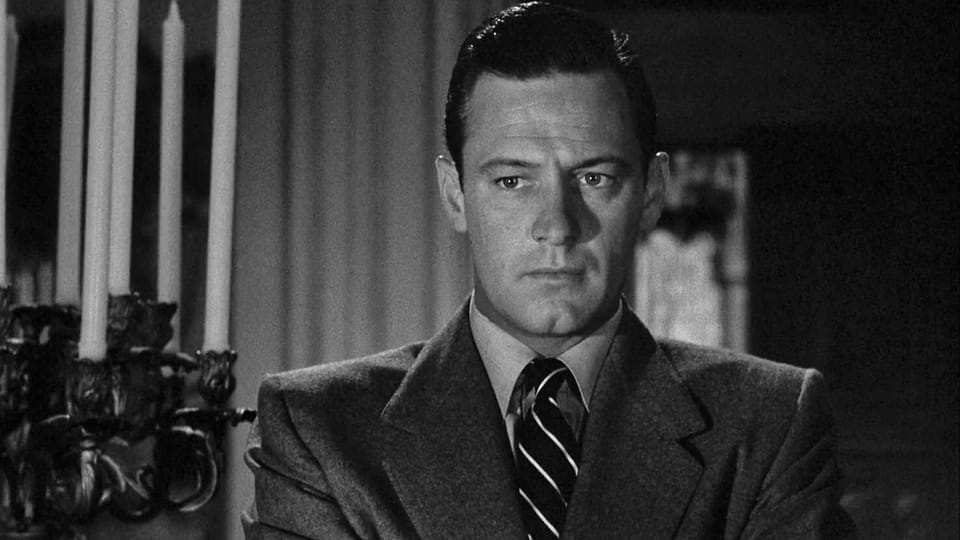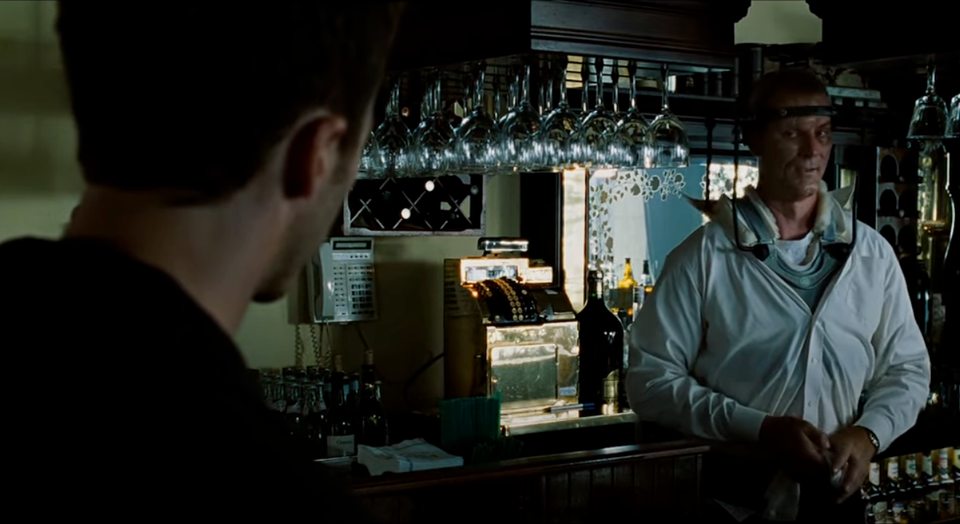How to cut 8 pages from any screenplay right now.
One of your primary tasks early in a script is to convince the reader that they are in excellent hands with you as their storyteller. The page count is the first evidence you submit to persuade them.

The Story and Plot Weekly Email is published every Tuesday morning. Don't miss another one.
Your page count matters.
Please trust me on this.
Is there a specific page count you want? Not really. But the lower the better.
Anything over 110 pages is pushing it. Because of my writing style, it takes me serious effort to get it below that. My first draft usually clocks in at 130 pages, and that's with me editing as I go.
You do have more leeway on an assignment than you do on a spec, but you will almost always get notes to cut pages and also to ADD scenes, so the battle goes on no matter where you are.
Why does the page count matter so much?
It's the first thing a reader checks.
That is not hyperbole. The first thing a reader will do is check the page count. And that will be their first emotional reaction to your screenplay.
It will be:
A. "Cool!"
B. "Okay, not so bad," or
C. "Son-of-a-bitch. Why do I always get the long ones?"
This is not new. This has been true as long as I have been in the business.
Sure, this can be frustrating.
I get it. It takes a lot to finish a screenplay, and it would be nice if people just read it and judge it on its own merits. That was my feeling for the first ten years of my career.
"Just read the damn thing. It's your job!"
Unfortunately, this position didn't help me.
At all.
Most screenplays—even those written by professionals—are challenging to read. People who read scripts have read a lot of scripts, and they know longer scripts tend to indicate certain things.
1. The writer didn't care enough about the reader's experience to make it shorter.
2. The writer needs to learn what is essential and what isn't.
3. The writer is self-indulgent.
4. This script will drag and take much longer to read.
Are these always true? Of course not. But they're true enough.
One of your primary tasks early in a script is to convince the reader that they are in excellent hands with you as their storyteller. The page count is the first evidence you submit to persuade them of this.
More than 110 pages, and they're suspicious of you. You're already off on the wrong foot.
Over 120 pages, and they will take it as a personal affront.
But you can give them a different experience.
Deliver something under 104 pages, and they'll go into your script full of hope! Follow that with a lean, mean, efficient, emotionally satisfying journey, and they will close your screenplay delighted with you and the experience you gave them.
Many things contribute to this. The number of pages they had to read was only one of them. But it's a big one.
And it's the only one the reader knows before they start.
It's all about the real estate question.
You only have so much space—so many lines on a page, usually 56. Is the writing you're taking up space with worth that real estate?
Is it worth making the screenplay that much longer? Is it worth more than something else that could take its place?
Economics is the allocation and distribution of scarce resources. Your scarce resource here is space on the page, and you should treat it as such.
Guiding Principles to cutting pages.
First, you can always cut.
No matter how much you have cut, you can always cut some more.
That doesn't mean it's a good cut. The price may be too high, but you can always cut.
Look to cut scenes, sequences, and large chunks of text first.
Don't worry—you will be fighting over the little things later, but aim to remove full swaths of text in the first wave.
Cut plot before story.
If the plot is the only reason a scene exists, consider finding a more straightforward way to achieve the same thing. A necessary emotional beat is more challenging to skip.
I always think about SKYFALL and how, at the end of a grueling third sequence where Bond "requalifies" as a 00, Q gives him a plane ticket, saying basically, "This is where you can find the bad guy."
Bond requalifying was the story; how they found the bad guy was the plot. The story was interesting; how they found the bad guy less so, so they just plain skipped it. "He's there, Bond. Go get him."
Every line counts.
You start fighting over the little stuff once you cut as many bug chunks as you can. Every line counts here. Focus and attack. Don't give in to it. Make every line, every word, every syllable a choice.
Specific tactical advice.
Widows and orphans.
These are lines that have only one or two words in them.
Like here:
Save the real estate. Added up they will make a difference. Rewrite that sentence or combine the line with another one.
Look for repeated information.
Sometimes, you may have to repeat something so the audience remembers it, but decide whether it's necessary. Do we already know this?
If we do, cut it.
Look to combine scenes.
If you're fighting over page count, a scene that only does one thing may be a waste. Look to combine scenes when possible.
Scenes that do multiple things are foundational to economic storytelling.
Come in as late as possible. Leave as early as possible.
This is true for dramatic momentum but also for keeping scenes slim.
The length of a scene should be justified.
This means a more extended scene should either be long out of necessity or worth it in value.
For example, I wrote a scene where a character visits a friend's mom to identify someone in a picture. It was 4 pages long and I was trying to have as much fun as possible.
If it was hilarious and a total joy for the audience, I would have kept it at 4 pages. A signature scene the audience will remember? I can live with 4 pages.
But it never got past amusing. So I cut it down to 1.5 pages, where it got the job done and was equally as amusing as the previous version for 2.5 pages less.
Use it or lose it.
I wrote an entire email on this topic last year. You can read it HERE.
It means don't introduce something that you don't fully exploit. If you're not taking advantage of it, you should cut it. Half-efforts don't deserve your real estate.
Be careful not to cut the life out of it.
This goes back to cutting plot before story. Your instinct may be to cut everything BUT the plot, but the audience doesn't really care about the plot. They care about the characters and their emotional reactions to the plot. Don't remove your story's pulse to trim pages.
Give your big scenes room to breathe.
The big emotional moments or set pieces are not the scenes you should aggressively trim. These are the scenes you are using to sell the script. Don't take any chances. Make sure these work.
If you're iffy, let these alone until you're desperate.
How to cut 6-8 pages from a screenplay right now.
This is generally the last thing I do. After completing all other strategies, I perform the cascading pagination trim.
The goal here is to cut enough from every page so that the top line of the next page rises into it.
Like this:
You do this on every page, one after the other. Trim just enough so that the first line of the next page moves UP.
You are not just cutting 110 lines from your screenplay. The format repaginates each time, creating a cascading effect.
It will barely move initially, but half a page will suddenly go missing at the end. Then, a whole page. And then another and another.
It's strangely satisfying each time the page count goes down.
Once all is said and done, you will cut 6-8 pages from your total page count.
Remember, you're fighting over every line here. Is your paragraph four lines long?
Can you trim it to three? Oh, it's three? Can you trim it to two?
Do you really need that extra word? That extra beat?
This is trench warfare. You're shifting by inches. Embrace it.
- If you honestly can't take a single line from a page, then take two from the next.
- It does not carry over. That is, if you cut half of one page, you start anew on the next page, still trying to get the top line to move up.
I have found this to be the most consistently reliable way to get my page count down.
Shift your mindset.
It's not about killing your darlings.
It's about accepting that your darlings aren't all that darling and they're not helping you.
So cut them loose.
Treat the real estate on the page as the scarce resource it is.
That's a wrap this week!
I've been relying on some of these tactics for a long time. I hope they help you as much as they have helped me!
Cheers!
Tom
The Story and Plot Weekly Email is published every Tuesday morning. Don't miss another one.
When you're ready, these are ways I can help you:
WORK WITH ME 1:1
1-on-1 Coaching | Screenplay Consultation
TAKE A COURSE
Mastering Structure | Idea To Outline




